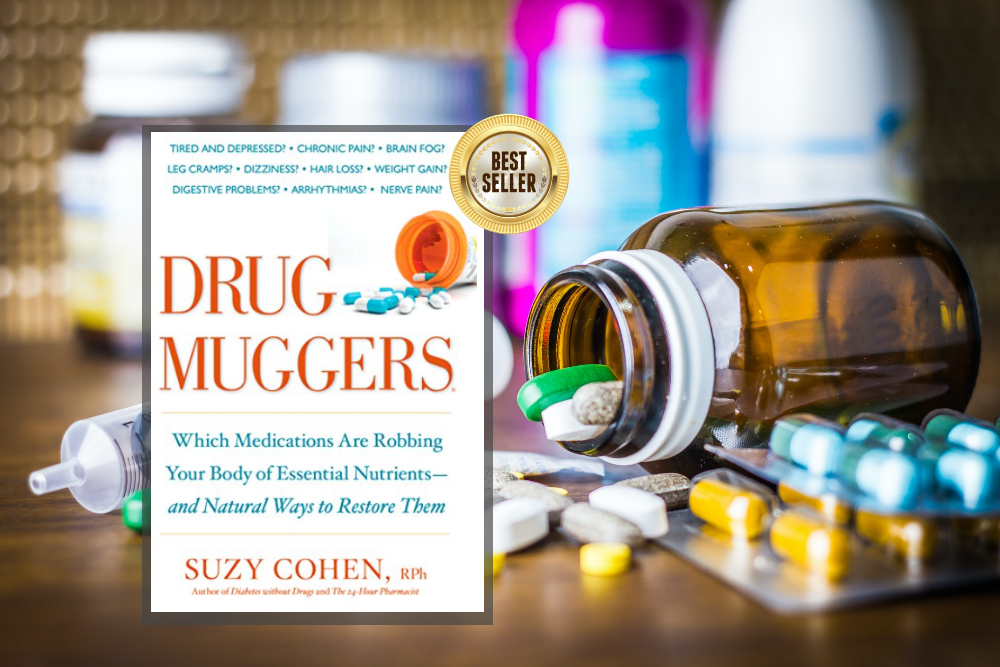What's On This Page?
ToggleKnown generically as “acetaminophen” or “paracetamol,” this is one of the leading pain relievers in the entire world. It’s probably in every medicine cabinet (including mine), right next to my ibuprofen.
Most people know ibuprofen can negatively impact the gut, whereas acetaminophen negatively impacts the liver in certain individuals – especially the elderly.
Today I want to focus on protecting you if you like to take acetaminophen. There are ways to protect your liver, and avoid severe liver damage. Many years ago, probably in 2001, I warned you all to take a dietary supplement called “NAC” if you needed to take acetaminophen routinely, to protect your liver and help restore glutathione levels.
Glutathione is an antioxidant that has anti-cancer activity. I was right about NAC, and only recently have conventional physicians are starting to recommend NAC too!
That’s because NAC can help reduce toxic effects of acetaminophen according to research published in the journal Drug Development Research, in August 2015.
This article provided an outright statement that recommended drug companies to add the amino acid, NAC, short for N-Acetyl Cysteine to the drug acetaminophen, in order to prevent toxic drug side effects. But I told you this years ago in my column, and in my free newsletter which you should get if you haven’t already!
By the way, NAC breaks down in the body to L-cysteine, an amino acid that is available as a dietary supplement. This is more biologically active, so wherever I say NAC, you can think of L-cysteine. Both are sold as dietary supplements at health food stores nationwide.
Acetaminophen is a Drug Mugger
Acetaminophen is what I call a ‘drug mugger’ of the antioxidant glutathione which can’t be produced in the body without a little help. It needs NAC in order to be made. There are more than 600 medications on the market that contain acetaminophen which can provoke serious adverse effects.
In fact, acetaminophen tops the worldwide list for drugs known to cause acute liver failure, sometimes caused by one single overdose, or by a therapeutic miscalculation. The latter happens when you take sleep aids, cold preparations and plain acetaminophen not realizing that all 3 of those had acetaminophen as part of the ingredient list.
In my example, above, the damage is done quickly. By the time a correct diagnosis is made at the Emergency Room, up to 90 percent of your liver may have shut down. Chronic use of acetaminophen, even in regular dosages, taken over a few days, or a few weeks can cause liver damage for some very sensitive individuals, and it’s hard to know in advance who you are.

Wine and Acetaminophen
The mere ritual of drinking wine with dinner and then taking acetaminophen-containing pain relievers will silently strain your liver to the point of injury. It’s like a small water leak in your body until the damage is finally done. You may get diagnosed with “fatty” liver, or diabetes, or obesity.
The damage is cumulative if you have SNPs in your cytochrome P450 genes or blocked methylation pathways that prevent you from fully eliminating the acetaminophen and its metabolites. The diagnosis will be some disease related to liver, but in reality, it could stem from alcohol or acetaminophen.
For those trying to understand this a little more, mitochondrial injury to the liver cells is the underlying factor.
You may be interested in reading my other article about liver health, The Art Of Detoxification: 8 Ways To Cleanse Your Body Naturally.
It’s A Bold Move
Several million people use acetaminophen without a second thought because it is very effective at relieving pain. The drug toxicity and risk associated with acetaminophen caused researchers to boldly advise that NAC be added to ALL acetaminophen preparations. I think it’s a good idea because you can continue on this analgesic (which works quite well), and still keep your liver safe.
Their goal is to have makers replace current over-the-counter acetaminophen products (including Tylenol®) with a formula that also contains NAC. The rationale is to prevent accidental (and intentional acetaminophen toxicity) that may occur and protect your liver with every single dose. NAC prescription doses will be used if you show up at the Emergency Room with an acetaminophen overdose!

Don’t Wait – Here’s a Solution
The wheels of medical progress and change spin slowly that as you can see, it took years to have a big journal tell you what I told you years ago in 2001 in my blogs, syndicated column and books!
At this rate, tens of thousands of people will become sick or die before the news is made big enough to touch every household in America. So please forward this blog to people you know it will help.
You can prevent some pain and suffering by sharing this article on social media, or sharing my website in general. Currently, I have over a thousand articles I’ve written, and they are all archived here so use my search box.
Anyway, here’s my suggestion, and you can obviously consult with your physician to be 100 percent sure: Every time you take acetaminophen, take an NAC supplement with it, about 400 to 600mg.
If you take acetaminophen several times a day, then consider at least 600 and up to perhaps 1,800 mg per day of NAC and see if that’s okay with your holistic provider.
Fill your diet with sulfur-rich foods and consider the new glutathione-boosting probiotic now available called Reg’Activ. Other important glutathione-supporting nutrients are selenium, CHELATED ZINC, glycine, glutamine, R-alpha lipoic acid, PQQ, silymarin, and B complex.

Suzy Cohen, has been a licensed pharmacist for over 30 years and believes the best approach to chronic illness is a combination of natural medicine and conventional. She founded her own dietary supplement company specializing in custom-formulas, some of which have patents. With a special focus on functional medicine, thyroid health and drug nutrient depletion, Suzy is the author of several related books including Thyroid Healthy, Drug Muggers, Diabetes Without Drugs, and a nationally syndicated column.


